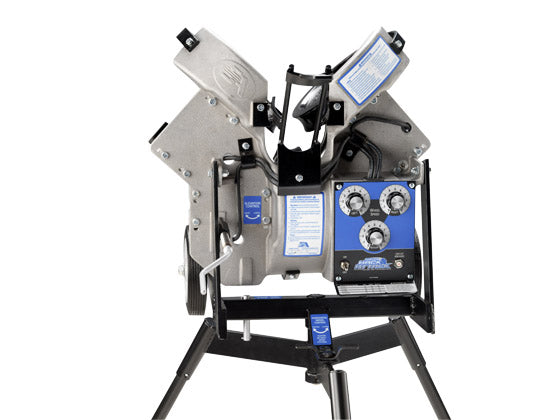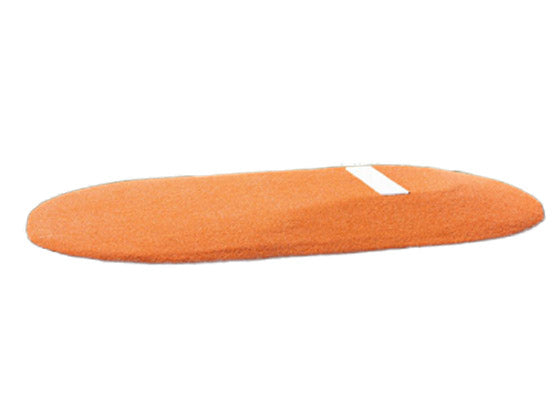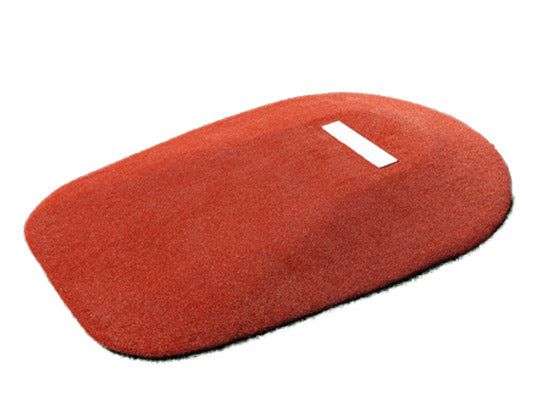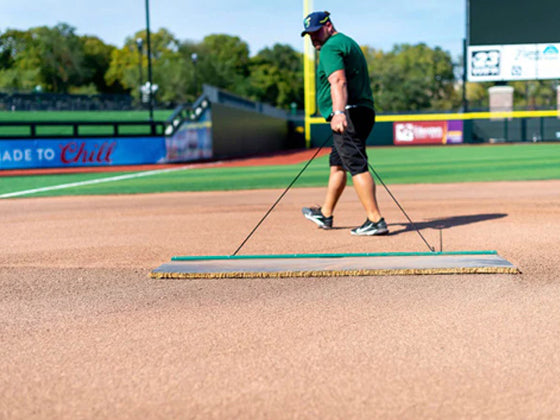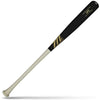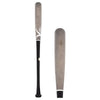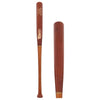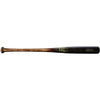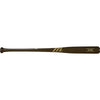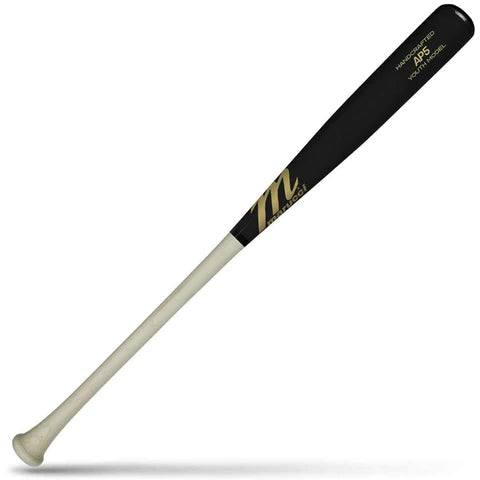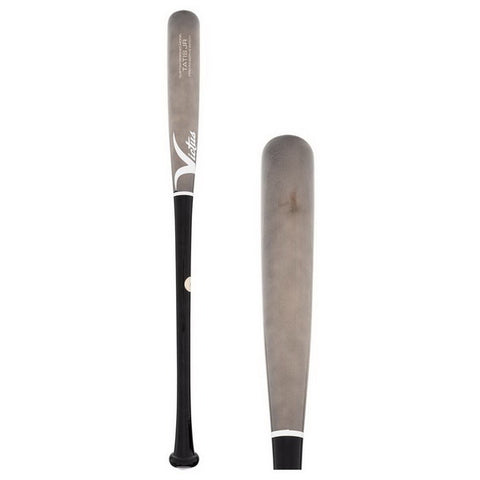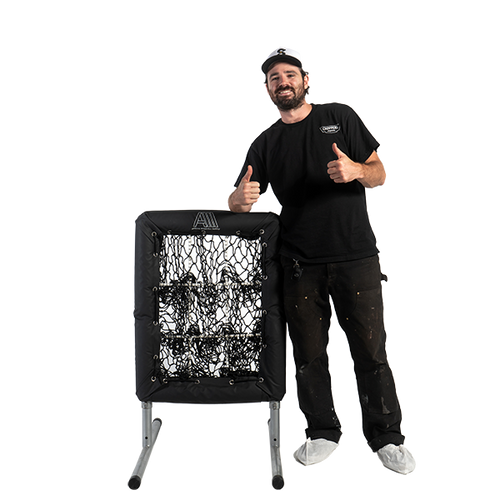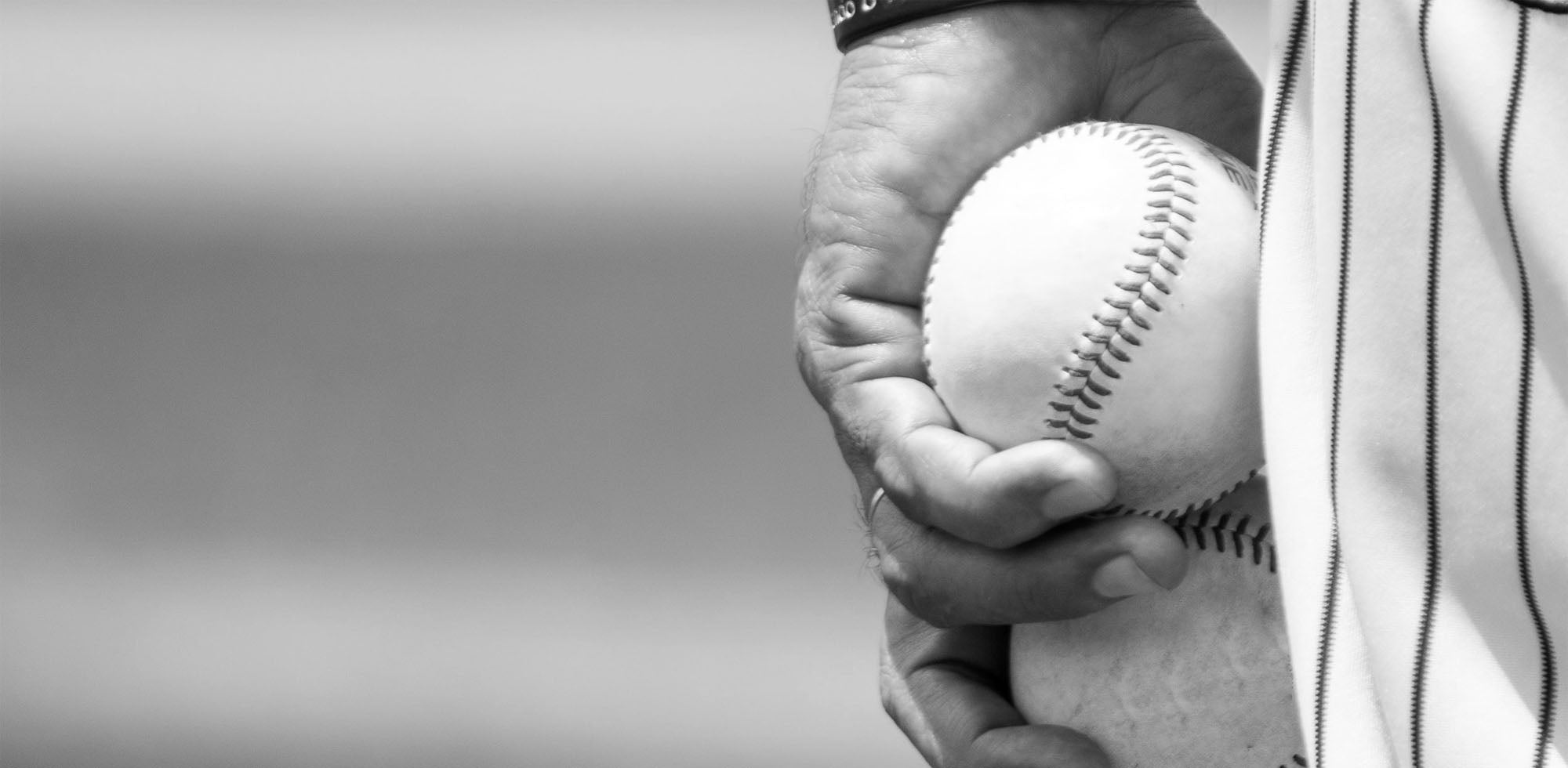Best Youth Wood Baseball Bats For This Upcoming Season
Contents
Click to Jump to Section
The quality of your youth wood baseball bat makes the difference between pop flies that land at the warning track and home runs that clear the wall. The quality of your youth baseball bat also makes the difference between shattering your wood bat at the plate, sending an easy ground ball back to the mound and a base hit that has the potential to drive in an RBI. So don’t believe the argument that any old youth wood baseball bat will suffice. There are meaningful differences between each unique youth wooden baseball bat.
Choose wisely and the wood bat you select will take your game to the next level, ultimately helping you reach your potential as a hitter. Below, we provide a look at the top ten best youth wood baseball bats. We also provide a list of the top considerations and factors to ponder when shopping for a new youth wood baseball bat.
Best Youth Wood Bats
1. Marucci Albert Pujols AP5 Youth Maple Wood Bat
Built similar to the adult AP5 bat, this youth maple bat will have the little leaguer in your family feeling like the Angels’ Albert Pujols when they step up to the plate. This is a fairly light bat yet it packs a punch, creating the potential for your Little Leaguer to blast some truly epic long balls.
Youth Wood Bat Features
- Tapered knob
- Traditional handle
- 1.3 pound weight
- Dimensions of 26 x 3 x 3 inches
Designed for optimal power, this end-loaded bat has a sizable barrel that will help your little leaguer rake at the plate.
Pros:
- Affordable price point
- Comes in 3 different sizes
- End loaded swing
Cons:
- Must register within 7 days to be eligible for warranty
2. Victus Pro Reserve Tatis Jr Birch Wood Youth Baseball Bat
Crafted from birch wood, the Victus Pro Reserve embodies the finest qualities of both maple and ash. When the ball meets the barrel, you'll experience the satisfying, clean sensation akin to maple bats. Simultaneously, this youth wood bat offers a degree of flex between the barrel and handle, reminiscent of the characteristics found in ash bats. Victus' commitment to excellence ensures that these bats stand out as some of the highest-quality options available in the market.
Pros:
- Wood bat is handcrafted from Birch
- Fernando Tatis Jr. Design!
- 45-Day manufacturer warranty
Cons:
- Slightly more expensive than other youth wood bats
3. Brett Bros. Maple / Bamboo Youth Wood Bat

The Brett Bros. Maple/Bamboo Wood Youth Baseball Bat (MBY) boasts a 2 1/4 inch barrel diameter, an approximate drop 5 length-to-weight ratio, and a standard knob designed for a comfortable grip. This youth wood bat serves as an ideal choice for players on the cusp of transitioning to BBCOR bats. Order yours now for free shipping!
Pros:
- Affordable price point
- Bamboo construction for durability
- Great for players transitioning to BBCOR
Cons:
- None
4. Louisville Slugger Prime Maple Youth Wood Bat

When it comes to youth wood bats, few are as stylish as this beauty. The bottom half of the bat is light in hue while the midsection and barrel are darker. The two-tone style is sure to appeal to the youth baseball player in your family. If you don't care for the regular Deep Flame/Black design, you can choose between Red/Electric Blue, Natural (white) and all-black.
Pros:
- ExoArmor finish
- -8 drop (+/- 2 ounces)
- Cupped
- Several colors available
- This beauty is available in 27", 28", 29", 30" and 31" sizes.
Cons:
- Some users reported breaking after a few months
5. Marucci CU26 Youth Wood Bat

Check out the reviews for this youth baseball bat and you will find kids love it. Though there are certainly cheaper youth baseball bats on the market, this wood bat is worth every penny and then some. Featuring Marucci's Signature M on the center of the bat, this youth model comprised of maple wood is quite stylish. The rest of this wood bat is all black but for its end which states it is handcrafted and designed for youth players. This wood bat is available in the following sizes: 26”, 27”, 28”, 29”, 30” and 31”.
Pros:
- Large barrel
- Thin handle
- Traditional knob
- 1.31 pound weight
- Dimensions of 26 x 3 x 3 inches
Cons:
- None
Give the Marucci CU26 youth model bat a swing for yourself and you will find it has just the right balance, providing you with optimal control speed and also helping you move the bat through the strike zone with the velocity and force necessary to hit liners into the outfield or even “go yard” as baseball aficionados like to say.
Things to Consider When Buying a Youth Wood Bat
Bat Sizes and Density
Wood youth wood bats are made with either a skinny barrel, an average size barrel or a big barrel. However, the barrel size is not as important as most make it out to be. Though skinny barrels and big barrels certainly have different sizes, a larger barrel will not turn a .200 hitter into a .300 hitter or transform a contact hitter into a power hitter. However, the bat type and barrel diameter are still fairly important considerations as the design of the bat affects the manner in which the ball is struck and sent into the infield and outfield.
Skinny barrel wood bats with a barrel diameter of 2.25 inches are perfect for smaller, thinner and lankier players who get on base with singles and doubles. Skinny barrel bats also have a barrel diameter of 2 3/8 inches.
Big barrel wood bats measure between 2.5 inches and 2 5/8 inches in diameter. Such large barrel bats are optimal for contact hitters who have power. These bats are designed with comparably large little league baseball players in mind.
Though barrel diameter is certainly important in the context of contact and power, the density of the wood is more important in the context of hitting success. The greater the density of the wood, the more pop the youth baseball bat has. Wood bats that are less dense have comparably less pop.
As an example, maple bats have more pop than those of the ash and birch society as it is that much more dense than other wood varieties. However, the denser the wood, the more it weighs so that much more muscle is necessary to swing the bat with power. Skinny barrel wood bats sometimes have more pop than comparably large bats. Opt for a skinny barrel youth wood bat with particularly dense maple wood and it will have ample pop. However, a maple skinny barrel bat will be heavier than other wood bats as it is quite dense.
There are even some skinny barrel wood youth baseball bats that are heavier on their ends to provide additional pop. The downside to skinny barrel wood baseball bats is that their contact point is not as forgiving as that of larger barrel bats. Opt for a bat with a bigger barrel and you will benefit from the larger sweet spot that provides that much more forgiveness.
Bat Balance and Weight
A balanced baseball bat is particularly important as it ensures weight is properly distributed throughout the bat. Some bats have a bit more weight toward the barrel while others are perfectly balanced throughout the full length of the bat. An even distribution of weight across the entire bat makes it that much easier to generate the fast bat speed necessary to hit with power.
Baseball bat weight also matters. If the bat is too heavy, your little leaguer will struggle to swing it through the strike zone at the rate of speed necessary to hit balls out of the infield. However, if the bat is too light, it won't provide the pop necessary to hit balls quickly and with considerable distance. The more weight the wood bat has the faster the baseball moves after being contacted. Find a wood bat with the right weight and your little leaguer will be able to hit baseballs with more speed, sending the ball that much deeper into the outfield.
Kids between the ages of 5 and 6 are best served with a wood bat that weighs between 21 ounces and 23 ounces. Youth baseball players between 7 and 8 years of age will find a wood baseball bat that weighs between 23 ounces and 25 ounces is just right. And kids between the ages of 9 and 10 are best served with a wood bat that weighs 23 ounces to 27 ounces.
Those between the ages of 11 and 12 will find a wood bat between 25 ounces and 28 ounces is best. Kids in the age range of 13 to 14 will need a wood bat that weighs 27 ounces to 31 ounces. Finally, tweens and teens between 15 and 18 years of age should use a wood bat with a weight of 29 ounces to 36 ounces.
Can you use Wood Bats in Little League Games?
Yes, you can use wood bats in Little League. In fact, some little leagues have banned the use of metal bats as they provide much more power than is necessary, potentially putting the pitcher in danger. Keep in mind, professional baseball players use wood bats as opposed to those of the metal variety. It only makes sense for youngsters to start out with wood bats as they will continue to use those of the wood variety if they become professional baseball players. Even some amateur leagues such as the California Collegiate League and the Cape Cod League require that players use wood bats rather than metal bats. The bottom line is every type of wood bat is legal for use in youth baseball games, regardless of the level.
What kind of 'Wood' bat to use - Maple - Ash - Birch
The type of wood used for your youth wood bat is particularly important. Maple, ash and birch are the top types of wood bats used by little leaguers. Maple wood is preferred by batters looking for additional pop. Ash wood is held in high regard by players who want the baseball to jump off the bat with considerable force, similar to a springboard effect. Ash wood bats also have a comparably large sweet spot, providing that much more surface area to make contact with the ball. Birch wood bats are ideal for those who struggle to make contact with baseballs at the sweet spot of the bat.
Maple is a particularly dense and hard wood. Maple’s surface hardness is usually around 20% more than that of ash bats, creating a bat that proves durable as time progresses. Swing a youth baseball maple wood baseball bat for yourself and you will find it has less give, meaning that much more effort is necessary to hit the baseball with force. Maple is favored by some as it has a comparably tightly grained hardwood that stops the wood from separating or flaking.
This comparable hardness creates a substantial rebound in regard to how the baseball moves off the bat after contact is made. The contact with the particularly hard wood causes the baseball to travel 10 to 15 more feet than would occur with a bat that has wood with less density.
Glide your hand across your maple youth baseball bat and you will find it is quite soft and smooth to the touch compared to other wood bats. However, the quality of one maple bat is not guaranteed to be the same as the next so be sure to run your hand over the one you are considering to ensure the wood is tight. Choose maple for your youth baseball bat and you will likely be quite happy with the purchase as this hard wood makes it that much easier to hit with power.
Ash is considered a medium hard wood. This wood’s grain is wider than that of other woods. The wider grain makes it that much more visible, creates more flexibility and has a comparably soft feel. However, ash is not as hard as maple and proves less durable than maple. The enhanced flexibility of ash helps batters to quickly move it through the hitting zone. Ash also creates a springboard effect. The increased flexibility even reduces splintering when the bat breaks.
Opt for a birch youth wood bat and you will find it is flexible yet quite hard. Birch wood bats’ surface hardness is about 20% more than that of youth baseball bats made of ash. Birch is quite flexible compared to maple, resulting in enhanced durability and flexibility. The grain of birch is that much wider than the grain of maple. Birch bats have tighter grain than ash wood bats. The hardness, durability and flexibility of birch bats helps you hit baseballs harder and farther.
Composite wood baseball bats are also available though they are not as popular as other varieties. This type of bat consists of several different blends of wood laminated to inner support. In general, composite wood bats provide the same results as regular standard wood youth baseball bats. However, the composite variety typically lasts longer and prove more durable than regular wood bats.
Final Words
The youth wood baseball bat you select will shape your success as a baseball player. Do not fork over your hard-earned money unless you are absolutely certain the bat you have in mind will help you perform better at the plate. Your bat should feel comfortable in your hands, remain intact instead of shattering when hitting baseballs, be the perfect weight and feel perfect throughout the entirety of your swing.
Do not stop searching for the best youth wood baseball bat until it meets all of the criteria listed above. Once you find a wood bat that meets this criteria, purchase it even if it is a bit more expensive than other options. Price should not be a deal-breaker as settling for an inferior but more affordable baseball bat will be disappointing in terms of poor performance at the plate and a higher likelihood of shattering. Opt for the cream of the crop and you will have a comfortable, reliable and effective youth wood baseball bat worth every penny and then some.

 Contact Us
Contact Us